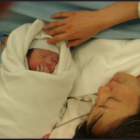Disparities
Coordinated Care Practices Help Keep HUSKY Members Out Of ERs
|
HUSKY members in a person-centered medical home (PCMH) practice are more likely to get recommended preventative health services and less likely to visit the emergency room, according to Department of Social Services (DSS) data. A PCMH is a medical practice that provides comprehensive and coordinated care. That can mean helping a child get an appointment with a behavioral health clinician; making sure a patient’s apartment is free of asthma triggers; and many other services hard to get in time-crunched primary care offices. Medical homes must also provide a high level of accessibility through measures like extended hours, electronic or telephone access or rapid appointment scheduling. The state instituted HUSKY PCMHs in 2012 with an eye toward improving care for patients with chronic conditions, according to Kate McEvoy, director of the Division of Health Services at DSS.

